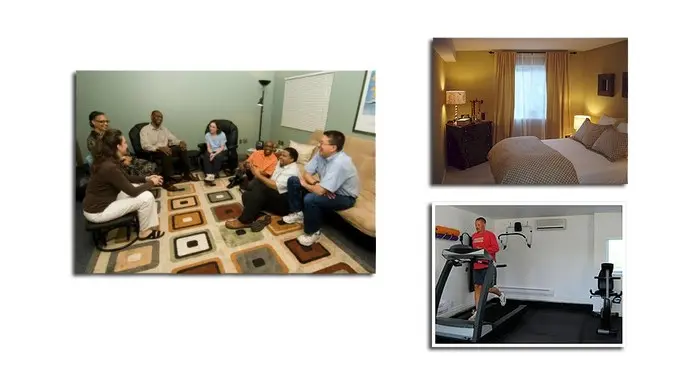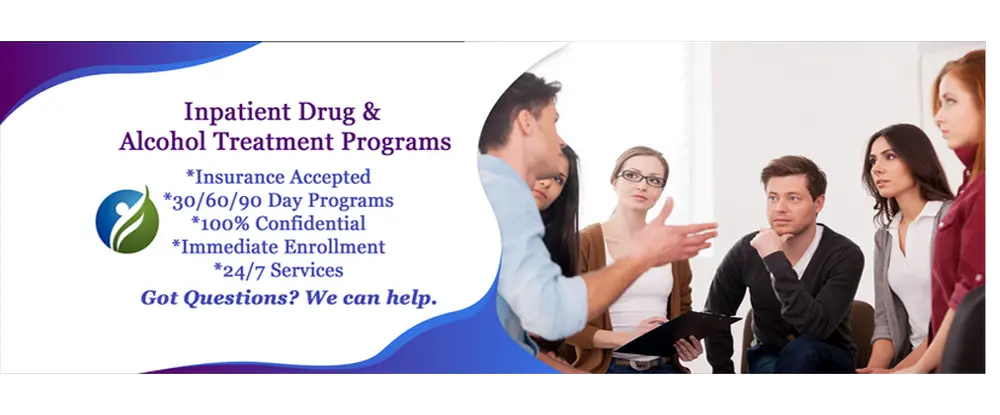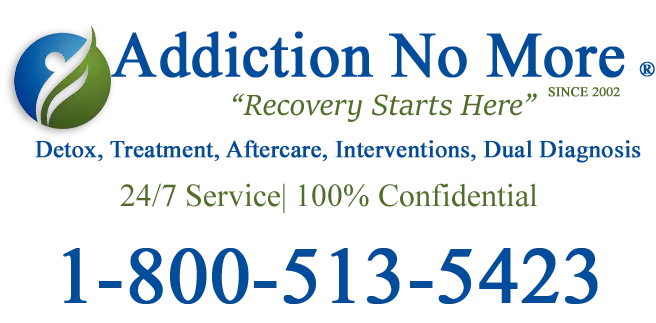Inpatient Drug & Alcohol Treatment Programs in Texas
There are many things to consider when you are looking for inpatient drug & alcohol treatment programs in Texas. You will need to be informed about the different types of treatment and therapy modules before deciding which program would work best for your specific needs. Different lengths of stay and levels of care are available at residential treatment programs throughout the country. Finding the best rehab center for the specific condition/addiction will help the patient be able to focus more on their personal therapy and treatment. We can help you locate treatment for addiction in your area or anywhere in the country. To locate AA meetings, group meetings, 12-step programs, inpatient treatment, or outpatient services in your town give us a call. There are many options for drug rehab services in many cities in Texas.Please contact us by phone for immediate assistance. This is a necessary step in beginning the recovery process for yourself or a loved one. Our addiction treatment specialists and staff have over 25 years of experience in helping people find effective and affordable treatment for all addictions. What you tell us is completely confidential. We are HIPAA compliant. We are here to answer your questions and to get you (or a loved one) into treatment today. For immediate intake, call us now.
1-800-513-5423
Austin, Texas Drug RehabsEl Paso, TX Addiction Treatment
Fort Worth. TX Drug & Alcohol Rehabilitation
Gilmer, Texas Substance Abuse Treatment
Houston, Tx 30/90-Day Treatment Centers
Longview, Texas Inpatient Drug Rehab Programs
San Antonio, Texas Treatment Centers for Addiction
San Marcos, TX Detox Centers, and Rehab Facilities
The Colony, Tx Residential Treatment Programs
Tyler, Texas Detox Centers and Inpatient Rehabs
Waco, Tx Residential Treatment Centers
Waelder, Texas Drug Rehab Centers
Wichita Falls, TX Substance Abuse Rehabs
For more locations in a city near you CLICK HERE
What you will learn:
Types of Programs in Texas
Do I need to detox before going to rehab?
What is the length of stay at an inpatient rehab center?
How much does addiction treatment cost?
How We Can Help

Types of Programs in Texas
Detox is the first step necessary to engage oneself in rehabilitation. Designed to reduce withdrawal symptoms for individuals dependent on heroin, methadone, Oxycontin, Opium, Percocet / Percodan, or Codeine, anesthesia-assisted opiate detoxification allows for engagement in a variety of aftercare programs aimed at placing drug addiction into remission.Dual diagnosis is the condition of having mental illness and substance use disorder. Dual diagnosis is sometimes referred to as co-occurring disorders or comorbidity. The term “comorbidity” describes two or more disorders occurring in the same person. They can occur at the same time or one after the other. Comorbidity also implies interactions between the illnesses that can worsen the course of both. Dual-diagnosis treatment programs are tailor-made to address the co-occurring mental and substance abuse disorders specifically.
Women who feel that they would be at risk of relapse due to stress or environmental issues are better served by entering into a residential treatment program for women. This type of program allows for the complete separation from day-to-day activities and stressful situations while undergoing addiction treatment.
The reasons that a person chooses to enter a holistic program can vary from person to person. Someone who has been through a traditional program before may want to try a different approach to treatment for addiction. You may prefer a holistic approach because it does not rely on medications, but focuses more on the use of vitamins, herbs, and minerals. There are several options and treatment models to consider when choosing a holistic drug rehab. We recommend that you go to a program that is the right fit spiritually, physically, and mentally.
Christian treatment programs start the building blocks of treatment with the newer approach of healing the person from the inside out. This approach differs from the standard 12-step meetings, which normally will tear someone down before they are built up. The building of the person’s relationship with Jesus Christ, self-worth, and responsibility, prepare them for the rest of the program. Some of the obstacles that we uncover in our journey to recovery from drugs, alcohol, or other addictive behaviors can take all of our energy, as well as the help we need from our Lord Jesus Christ.
Specialized drug and alcohol treatment programs are formatted to help the LGBTQ community and the complex issues that are synonymous with LGBTQIA communities. Addiction problems have affected the LGBTQ community for far too long. Often conventional drug rehab programs struggle to serve the gay, bisexual, transgender, lesbian, queer/questioning community. Lesbian, Transgender, Bisexual, and Gay-oriented drug rehabilitation centers will have a program designed specifically for each member of the LGBT community.
Some people will need to find an ultra-private rehab center to ensure anonymity and privacy. These types of luxury drug treatment facilities offer programs that will do their best to ensure that no one finds out about your time in treatment while enrolled and discharged from their high-end rehab facility. Luxury facilities offer treatment for addiction in lavish and secluded beachfront, and mountain resorts. These peaceful rehab setting facilities have private rooms, beautiful grounds, and high-end furnishings. These programs offer the most educated therapists and medical personnel while offering spa-like activities creating the feeling of a vacation rather than a substance abuse treatment program. This type of high-end treatment facility can provide rehabilitation programs for CEOs, celebrities, musicians, and athletes, who may need to conduct business while enrolled in a treatment program for addiction. The use of computers, cell phones, and outside communication will be allowed at some retreats like drug rehab centers. These high-end treatment centers understand the need to conduct business to keep up with the busy life of an executive and provide areas and time for this type of activity that is necessary to the client.
Professionals may need different liberties than the normal run-of-the-mill drug rehabilitation program can offer. Executives, celebrities, doctors, and politicians may need to be able to conduct business while in treatment. A private drug rehab center is a good option in this situation. A shorter stay in treatment can be worked out, for those needing to return to their lives. Top Executive rehab centers cater to high-level executives, CEOs, and celebrities. When there is a need for discretion, anonymity, and the ability to work while in treatment, these programs are ideal.
A few treatment programs offer pet therapy and even allow you to bring your dog or cat to rehab. These programs can be hard to find depending on your location and finances. The programs that offer pet therapy will have dogs, cats, or farm animals like horses or goats that are there for the pet therapy program. While other programs will allow you to bring your pet to stay with you.
Secular drug rehab refers to an organization that is indifferent to the concept of religion, the supernatural, or God and usually relies on science or logic instead. The main goal of these types of programs is to help people achieve a life without the need to self-medicate. The practice of this moral philosophy does not necessarily include that practicing a religion is a problem, but it emphasizes living a life without relying on religious practices to guide your moral compass.
Addiction treatment for veterans, military, and active duty service members has recently evolved to now include private inpatient drug rehab centers in the United States. With drug rehab centers being able to finally accept Tricare insurance, we can now help Veterans and their families seek treatment and detox programs that are outside of the VA. Seeking treatment for a Veteran who has become addicted to prescription drugs, illegal drugs or alcohol can be a daunting task. There are more options now available to you since the VA overhaul. We want to be available to everyone who needs treatment for addictions, especially for our brave men and women in the Military and their families.
Partial hospitalization programs or PHP treatment programs utilize sober living and outpatient therapy to deliver a program in a safe living environment with some freedoms of an outpatient treatment program. Coming to your own living space and taking care of yourself while undergoing treatment for addictions to drugs or alcohol can be the best fit for someone who is highly motivated and wants to get help for their addiction to drugs or alcohol.
For more information on the types of inpatient drug rehab centers in your area, or anywhere in the United States, please call us now.
1-800-513-5423

Do I need to detox before going to rehab?
Detoxification from drugs or alcohol is usually the first step in the treatment of addiction. Depending on the type of drug the patient is being admitted for will determine if the person will need medical detox. This will also affect the length of stay at the inpatient treatment facility. Most prescription medications and some illicit drugs will require detoxification. Heavy alcohol abusers will also require a detox period until they are cleared to enter into a drug rehab center. Do not attempt to quit any medications or detox at home until you have consulted with a doctor to ensure that it is safe to stop using your medications. Detox should be followed up with a residential inpatient treatment program.Sobriety should not stop with detox. For long-lasting recovery from addictions, there should be continued recovery through counseling and therapy to ensure that the individual does not fall into the same behaviors as before. Outpatient or inpatient treatment is solely up to the patients seeking treatment for their addictions. Both are acceptable forms of treatment for addiction and one that will work for one may not work for everyone. Make sure if you are going to try outpatient you have a solid place to stay with a good support system in place to ensure that the recovery process is done as stress-free as possible.

What is the length of stay at an inpatient rehab center?
The length of stay at an inpatient treatment center in Texas is dependent on the addiction, amount of use, frequency of use, and ability to take time off work or responsibilities. Long-term, 90-day drug rehab centers offer a longer stay for those who need more time to handle their addiction. Residential inpatient long-term drug rehabs help those who have a heavy drug or alcohol addiction and need intensive treatment for their addiction. Treatment at a short-term program can last anywhere from a 2-week intensive inpatient therapy to 30 or more days depending on the program or severity of the addiction. Short-term, 28-day inpatient treatment programs work almost the same as long-term drug rehab centers. The only difference between a long-term and a short-term 30-day treatment program is the amount of time and therapy you would receive while enrolled in the program. Finding out what is needed to handle the patient’s addiction issues can give you a good idea of how long the patient should be treated in a short-term inpatient drug rehab.
Addiction treatment can take anywhere from 2-weeks, to two years. The average stay is around 30 days. Private drug and alcohol treatment programs can vary in length from a short-term to a residential long-term stay. Private long-term drug and alcohol rehabilitation centers are usually appropriate for someone who has either tried to recover before or needs more of a longer-term program. Entering into a 30 to 90-day rehab center will ensure that the individual is pulled out of their environment and placed in a caring and loving space without the pressures and temptations that can be found at home. Treatment for certain addictions will need longer stays in drug rehab, 60 – 180 days in a private residential drug rehab center.
Addiction recovery will take as long as it takes and requires a lifelong commitment to ensuring sobriety. Private 90-day, long-term drug rehab centers coupled with an aftercare program offer the best outcomes for addiction to drugs or alcohol. The length of time spent in a drug rehab center does not necessarily ensure a better treatment result. Treatment and recovery are personal and it can take a short time to recover or it can take more than one attempt to get it right.

How much does addiction treatment cost?
Inpatient rehab centers can vary in length, and price. The length of the program can have a significant increase in cost as opposed to shorter-term 28-day treatment centers for addiction. Prices can range from $4000 a month up to $80,000 a month for ultra-private and exclusive treatment programs for addiction. Most inpatient treatment centers have some form of payment plans and insurance co-pay loans through third-party financing services. Most co-pays for drug rehab treatment will need to be paid upfront or have a payment plan in place to cover what the insurance company does not cover. Deductibles must be met before insurance will cover treatment for addiction to drugs or alcohol.
Getting insurance to pay for an in-house drug and alcohol rehab depends on your insurance plan and the carrier of your policy. Through the ACA, mental health has been added to most policies ensuring that coverage is there for mental health and addictions. The main carriers of insurance in the United States will offer some coverage for inpatient drug and alcohol treatment, and in some cases will cover most of it. We can help you verify your insurance to ensure that you know exactly how much out-of-pocket expense will be needed to enter into treatment for addiction. Depending on your copay limits and the percentage that covers mental health will determine how much your insurance provider will pay. We are here to help you get the best inpatient treatment program to fit your specific needs.
How We Can Help
We can help you find a residential program for the treatment of drug addiction or alcoholism. Our goal is to help you find the best possible residential treatment facility available for your specific needs. Telemedicine services in Texas for drug addiction treatment are starting to become more accepted as a form of treatment for addiction issues. More treatment centers are linking up with telehealth providers to offer a hybrid treatment plan with some outpatient components as the need to deliver a well-rounded telehealth treatment program for addiction in Texas. If you have any questions regarding the treatment and types of programs, contact one of our counselors now.1-800-513-5423

LifePath Systems
Located in Plano, Texas
7308 Alma Dr.
Plano, TX 75025
Pegasus Schools Inc
Located in Lockhart, Texas
896 Robin Ranch Road
Lockhart, TX 78644
River City Rehabilitation Center Inc
Located in San Antonio, Texas
680 Stonewall Street
San Antonio, TX 78214
Helen Farabee Regional MH/MR Center
Located in Decatur, Texas
1508 N Business 287
Decatur, TX 76234
West Texas Counseling and Rehabilitation Program of Midland
Located in Midland, Texas
2401 West Wall Street
Midland, TX 79701
Sources
Specialized substance abuse programs
Outpatient
Samhsa
Erik Epp – Content Author





